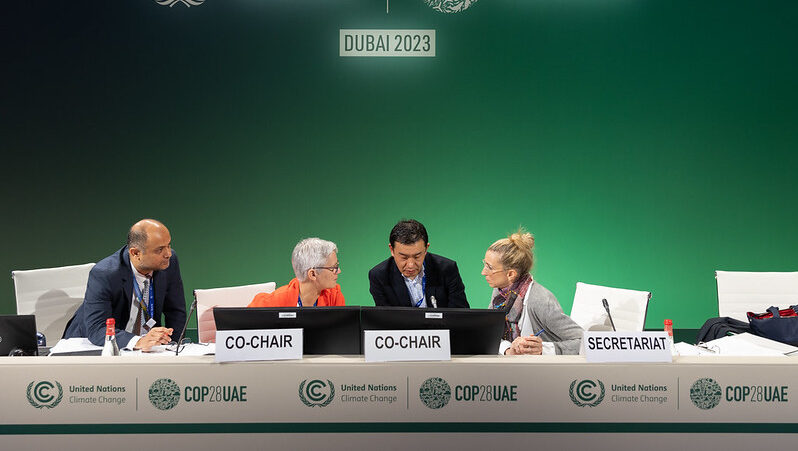The EU and allies rejected proposed carbon trading rules that followed a “light-touch” approach favoured by the US
Hopes of clinching a deal on carbon trading mechanisms evaporated under the desert sun in Dubai after a tussle between the European Union and the United States.
Countries failed to agree on key rules to trade offsets bilaterally and to kickstart a long-awaited global UN-sanctioned market.
Two opposing, and ultimately irreconcilable, forces fueled tense marathon negotiations regularly stretching into the early hours. Getting the system up and running as quickly as possible, on one hand, while ensuring integrity and transparency on the other.
The US championed what observers described as a “light-touch, no-frills” approach to regulations. That would hand a prominent role to private sector players from the much-criticised voluntary market.
A bloc led by the EU along with African and Latin American states pushed back. They wanted stronger checks and balances and a loosening of confidentiality clauses that could have prevented scrutiny.
The risk many highlighted is that, with a weak framework, the new mechanism could become a dumping ground for junk credits.
After late-night informal negotiations tried to salvage a deal, the presidency put “take it or leave it” text on the table. It contained confidentiality provisions many found unacceptable and was roundly rejected. Negotiators will try again to land a deal at Cop29 next year.
Markets in limbo
The collapse leaves bilateral deals in limbo. Several countries have struck preliminary deals to buy carbon credits from others to meet their emissions targets. Switzerland signed its first such agreement with Peru back in 2020, while Singapore inked a deal with Papua New Guinea on Friday.
Controversial Emirati startup Blue Carbon is also aiming to trade credits under the mechanism from several African and Caribbean nations.
The breakdown in talks also sends rule-makers for a new global carbon market back to the drawing board.
Over 12 months and several meetings, a technical body had drafted rules on methodologies underpinning projects and on the eligibility of removal activities. But countries did not adopt the body’s recommendations.
“Trading carbon credits requires strong environmental and human rights guardrails,” said Gilles Dufrasne, policy lead at Carbon Market Watch. “The text on the table just didn’t provide this. It would have risked reproducing the mistakes of voluntary carbon markets, and b
Read More

